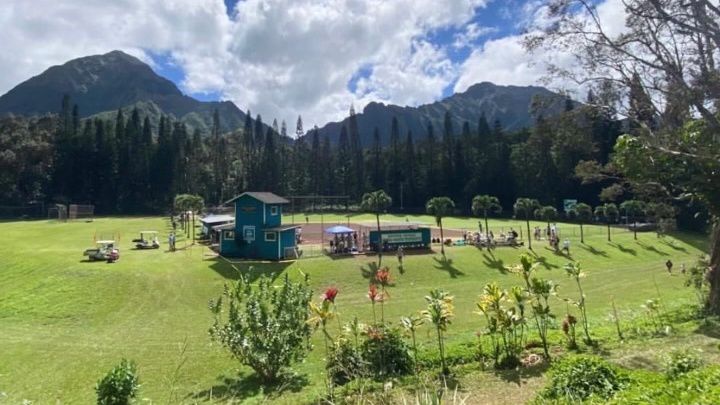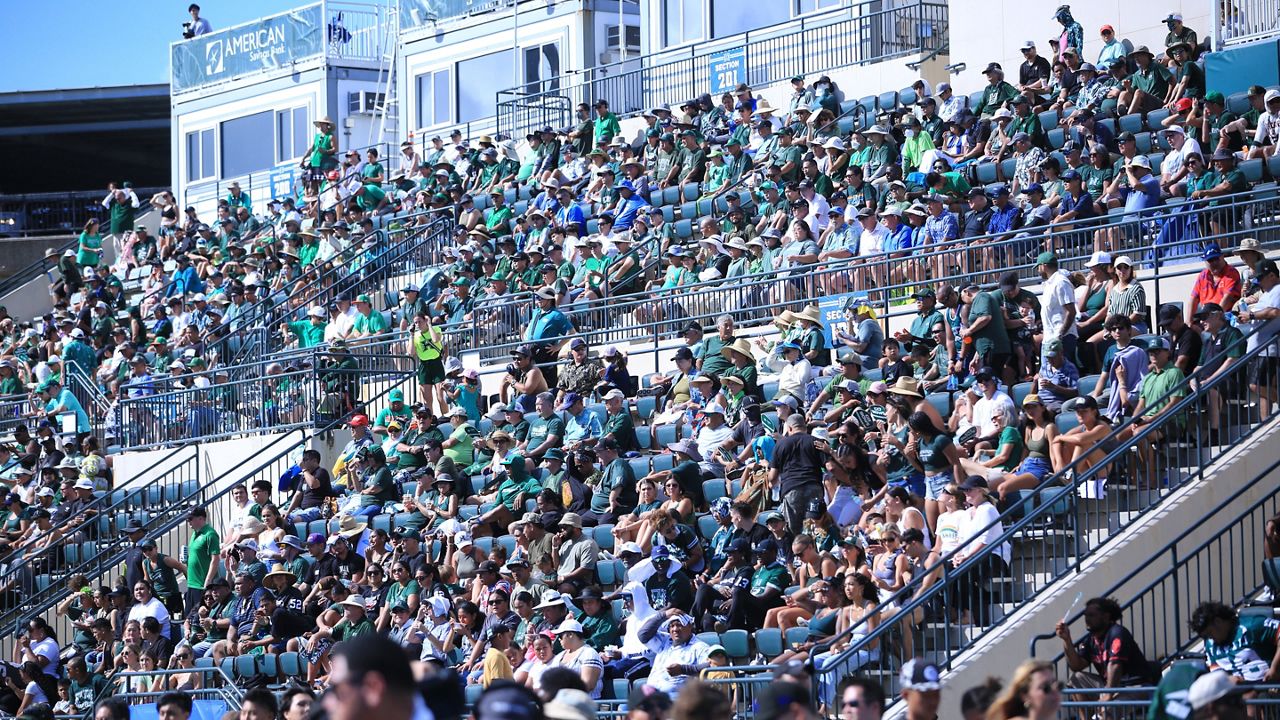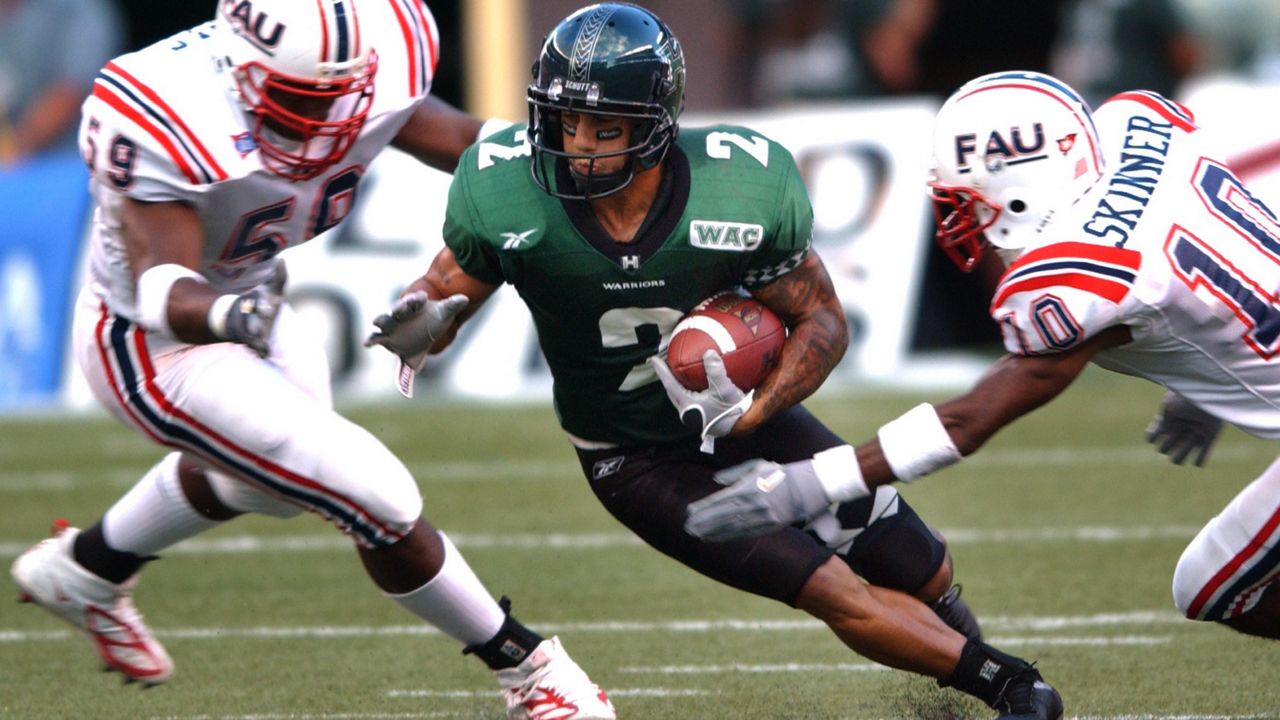HONOLULU — An announced change of venue for Hawaii Pacific University’s storied softball program has been met with dismay and anger from members of the Sharks community.
Former HPU softball coaches and players spoke out to Spectrum News in the days after the private institution announced July 14 it will move its practices and games from Howard A. Okita Field at the Hawaii Loa satellite campus in Kaneohe to Sand Island, close to its Aloha Tower Marketplace hub, starting in fall 2024.
HPU expects to save some money with the move and said it can create better accessibility for its student-athletes at the site across Honolulu Harbor from Aloha Tower. But HPU softball community members who spoke to Spectrum News said the sites do not compare when it comes to field quality, amenities, scenery and history — the last of those being perhaps the most important to them, as the late former coach Howard Okita built it up personally, by hand, over the decades to match the program’s rise from humble roots into an NCAA Division II national champion.
In April, the HPU softball family held a 30-year commemoration of Okita Field, tucked away from sight off of Kamehameha Highway near the base of the Koolau Mountain Range. Its phalanx of Norfolk pine trees — towering sentries beyond the outfield wall — began as three-footers planted by players in the early 1990s.
The 2024 spring season is slated to be the program's last at its longtime home. HPU sold the Hawaii Loa Campus to Adventist Health Castle in 2015 and has remained on a lease since, but it plans to vacate the premises entirely next year.
Brandi Leong, an All-PacWest second baseman who completed her Sharks career in May, had the opportunity to play at Okita Field for five seasons. She also played games at Sand Island; PacWest peer Chaminade began playing its home games there in 2023 at the same complex HPU will use.
“It makes me so sad to think about,” Leong said. “There’s so much meaning behind Howard Okita Field; generations of people put blood, sweat, and tears into that place. It’s more than a field, it was a place that we (the softball program) could go when we needed an outlet, it was a gathering place for tons of friends and families, it was a place we could call home.”
Sharks head softball coach Jarnett Lono, a former HPU player for Okita and member of his coaching tree, did not criticize the administration’s decision but said in a message to Spectrum News that the Sharks’ longtime home is a “field of dreams” that bridged generations and a “hidden gem that cannot be replicated and/or relocated.”
HPU told Spectrum News that while it respects the history of the field, the decision to move was in line with the school’s master plan to consolidate its resources for students around its base of operations at Aloha Tower.
It expects to save an unspecified amount of money through the move, which includes jettisoning Atherton Field, its longtime soccer practice venue and former match site at Hawaii Loa campus. HPU Vice President and Chief Marketing Communications Officer Jeffrey Rich said it would cost upward of $1 million a year to keep using Okita Field when factoring in a new lease, shuttle transportation, security and groundskeeping.
“It was deemed to be excessive in terms of the fact that we were no longer going to be present in that area. It was the right thing to do for the university,” Rich said.
HPU reached an agreement with the Hawaii Softball Foundation for the long-term use of one of its fields at its Sand Island complex, as well as a practice field for its men’s and women’s soccer teams. (HPU soccer will still play games at Waipio Peninsula Soccer Stadium.) HPU pledged to develop its new softball home with bleachers and dugouts.
HPU initially announced it planned to dedicate its future Sand Island field to Okita with a plaque. But Nina Okita, Howard Okita’s widow, told Spectrum News — and HPU — she doesn’t want her husband’s name associated with the field at all.
She told Spectrum News she was “very upset” over the matter. She said she spoke to HPU President John Gotanda over the phone on Thursday, and he agreed that HPU would not go ahead with the plaque dedication, according to her.
The Okitas were married for 58 years until Howard, who had leukemia, died in 2017 at 81.
“We have a lot of good memories (at Hawaii Loa),” said Nina Okita, 84, who maintains close ties with the program. “Why go to a facility that is not comparable to what we have, in the convenience and the beautiful background of the mountains and pine trees and the surroundings. It’s a lot cooler (in temperature). Those are the factors.”
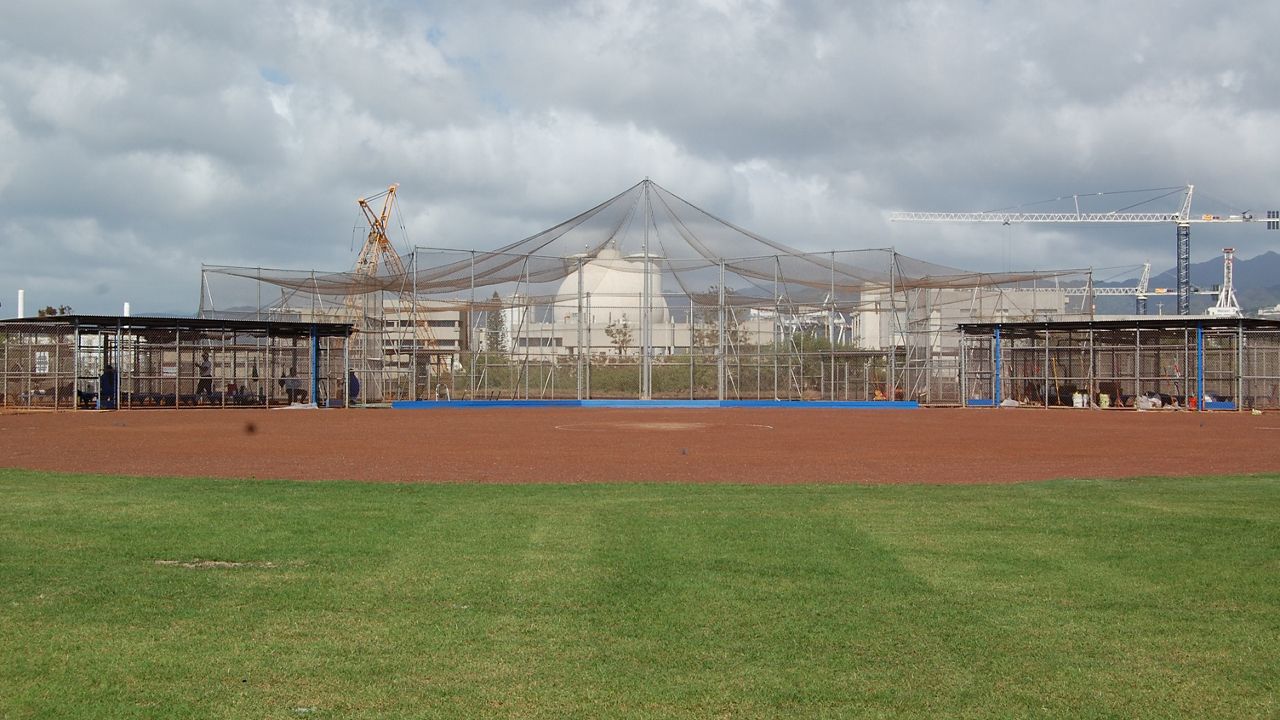
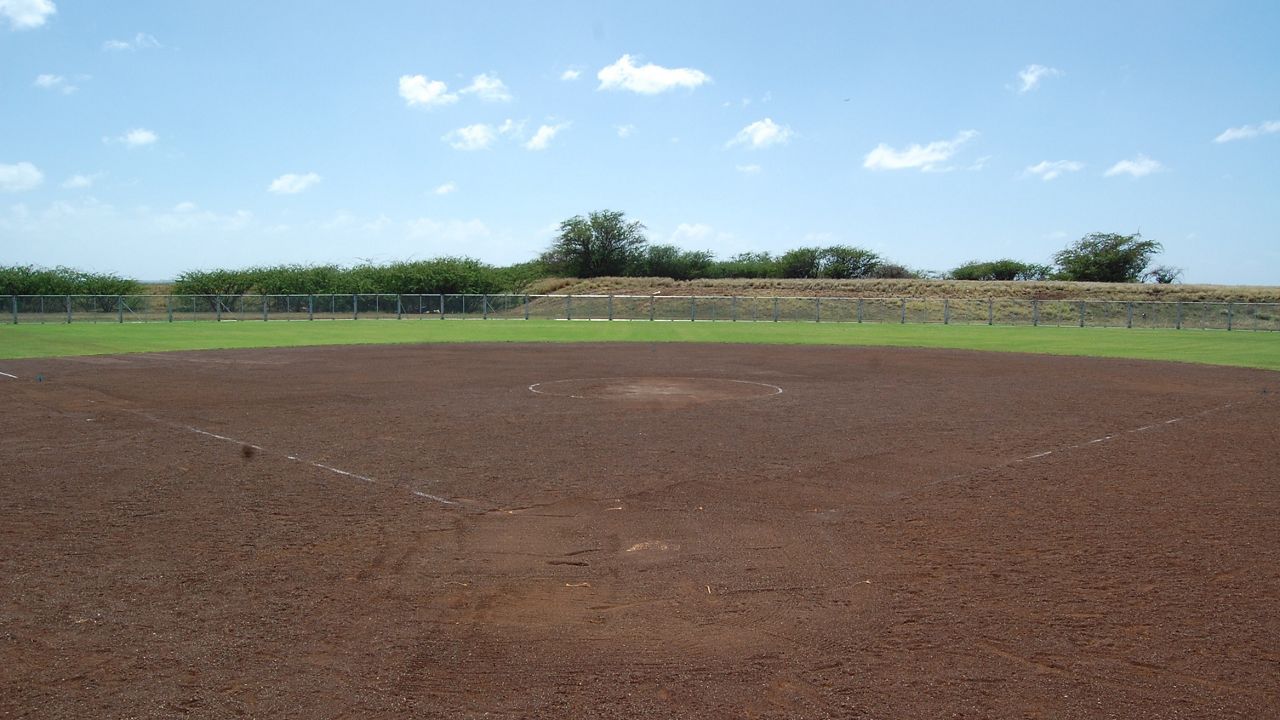
Issues at Sand Island raised by HPU softball community members who’ve played at or seen the site included a lack of shade and hotter temperature; undrinkable water; absence of electricity and no scoreboard; noise from frequent overhead aircraft; homeless in the vicinity; and a lack of safe storage and a history of security issues like stolen equipment.
Rich countered that Okita Field, with its wetter location, has a greater chance of rainouts and had “major drainage issues” that were reason enough to look for a new site. HPU sometimes had to move or reschedule as many as a half-dozen games a year for those reasons — often to Sand Island.
Chaminade transported its own water and ice jugs and softball equipment to and from Sand Island for every softball practice, and those items plus a power generator for games in 2023, a person familiar with the situation told Spectrum News. HPU likely must check the same logistical boxes for the time being.
Sand Island’s softball complex will improve over time, Rich said.
“The Hawaii Softball (Foundation) has a five-year plan to develop the facility into a fully green sports complex with solar power,” Rich said. “The plan includes building changing rooms and showers.”
Well after he finished coaching, Howard Okita would tend to his namesake field on a daily basis — mowing, edging, weeding, grading and building.
“It looked better than our yard, you might say,” Nina Okita said. “He would tell the players to get off the grass.”
The dugouts, scoreboard and bathroom were among the amenities donated and built by alumni and volunteers over the years. The site was transformed completely from its origin as a gully strewn with trees and bushes.
Bryan Nakasone coached with Okita back when Hawaii Loa College was a separate entity from HPU (then known as Hawaii Pacific College) and the Mongoose won the 1991 NAIA national championship. After the schools merged, the two friends stayed on in the Sea Warriors era. They co-coached from 2002 to 2008, at which point Okita stepped into an assistant role. They were still working together when HPU won it all in 2010.
From 2005 to 2011, HPU was a force in the PacWest and made NCAA regionals six times, often behind standout homegrown players.
Nakasone, who retired from coaching in 2020, still tends to the field, along with several other volunteers who leave their personal lawnmowers, trimmers, edgers and other equipment nearby.
“It’s kind of hard to give up,” Nakasone said.
The field was a major draw for recruits. Former assistant Michele Fukumoto said that Okita used to take prospects from the airport, through the H-3 tunnel straight to the Hawaii Loa campus to see the field before showing them HPU’s Downtown Honolulu campus.
Nakasone worries that the move will permanently damage the program. And he doesn’t think Windward Side-based volunteers who give their time to maintain the field will do the same at Sand Island.
He won’t, he said flatly.
Nakasone felt there was a lack of communication — and answers — given to the fellow members of the softball community from Athletic Director Debbie Snell and senior administrators over the last few months.
“I think this breakup is going to break up the whole program,” Nakasone said. “(Administration is) going to do what they’re going to do. We’re not going to be able to change their minds. Okay, if that’s the case, well, so be it, but they’re sure going to lose a lot of support in donations and everything else.”
He said he took the initiative to meet with Adventist Health Castle leadership to see if the softball program could remain at Okita Field and said that Castle was amenable to them staying for another 10 to 15 years, should HPU be able to provide liability insurance. A dollar figure was not discussed, and that’s as far as the talks went, Nakasone said.
Rich countered on HPU’s behalf that the administration had indeed communicated with the softball community and program effectively throughout the decision-making process.
As for the volunteer labor that HPU stands to lose with its relocation, Rich said there were multiple factors to weigh.
“There are many, many expenses that the university has to incur to maintain that field that go way beyond what the volunteer time has helped us with,” he said.
Maile Kim, a utility player on the HPU 2010 title team and later, an assistant coach, said she and other alumnae had a feeling the decision was coming but were holding out hope it wouldn’t.
“It will never make sense to me, from a logistics and business view and then, more personally, an emotional standpoint,” she said.
“This field was built to last and has proven to stand the test of time.”
In its news announcement last week, HPU acknowledged a “special significance in the hearts of alumni, players, coaches, and everyone who set foot on the field” but said its campus master plan was partly informed by student input that prioritized a centralized campus in Downtown Honolulu.
Brian McInnis covers the state's sports scene for Spectrum News Hawaii. He can be reached at brian.mcinnis@charter.com.




